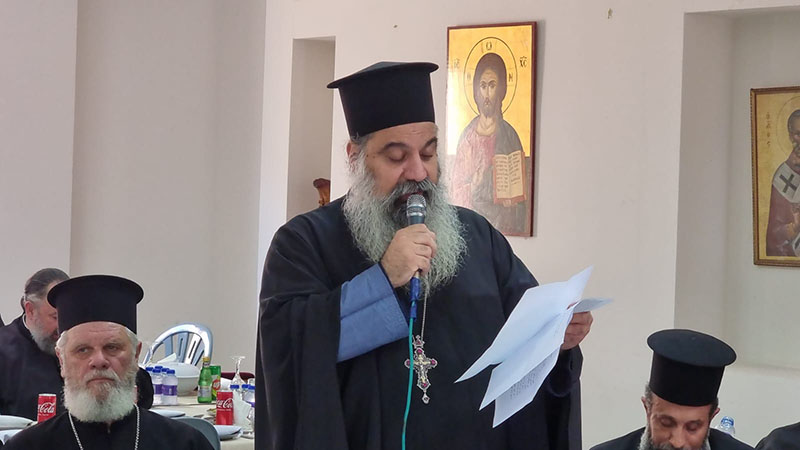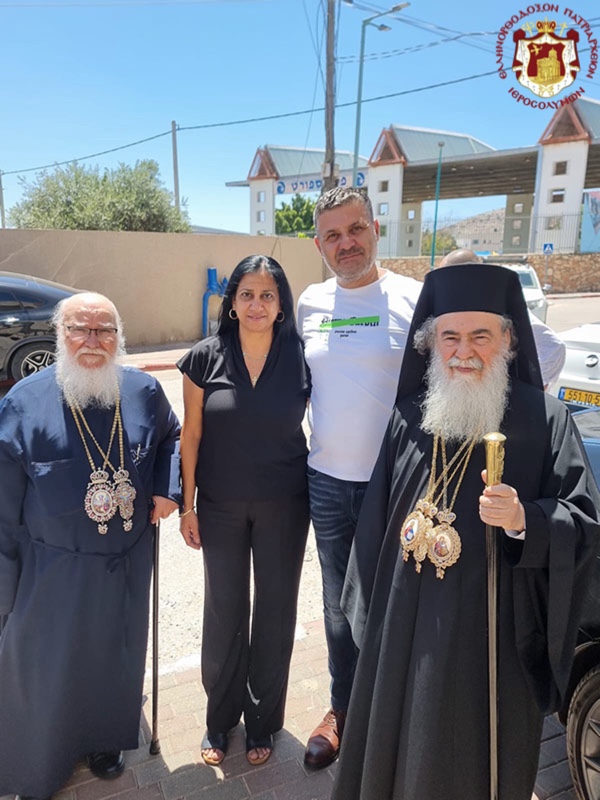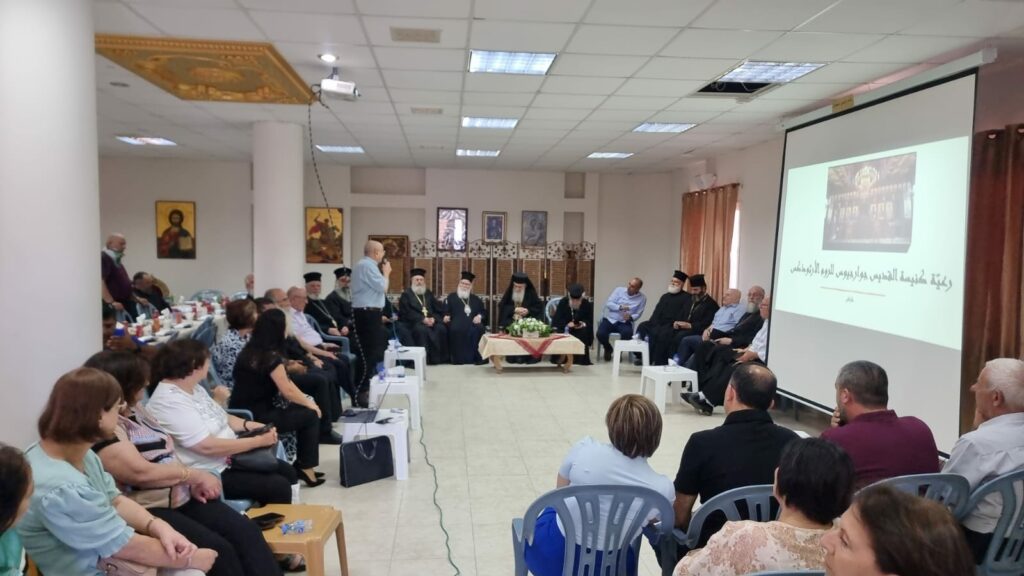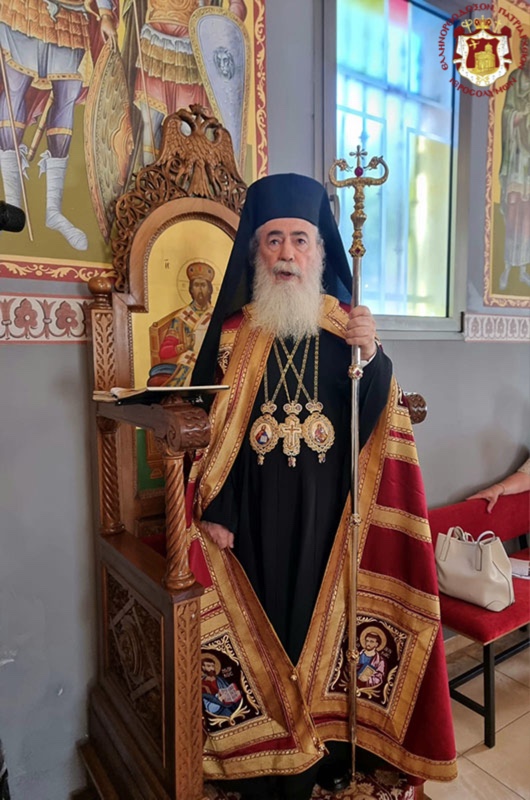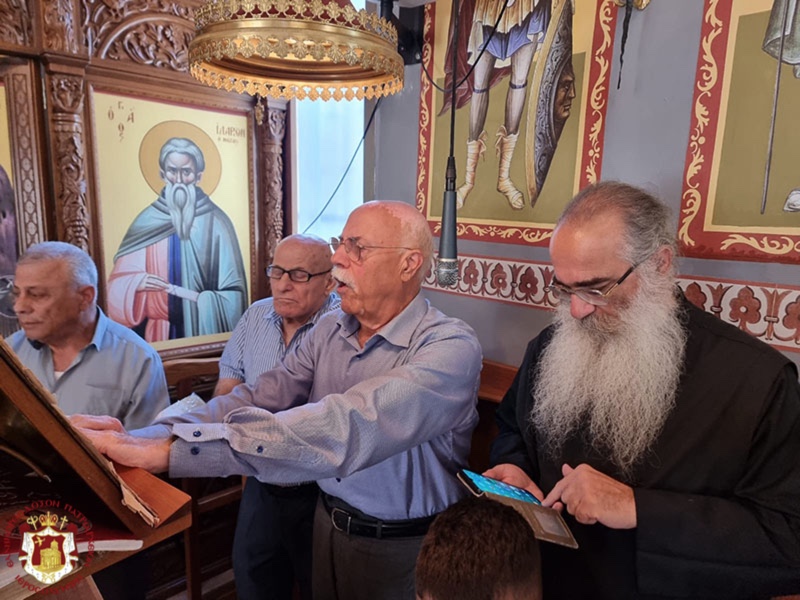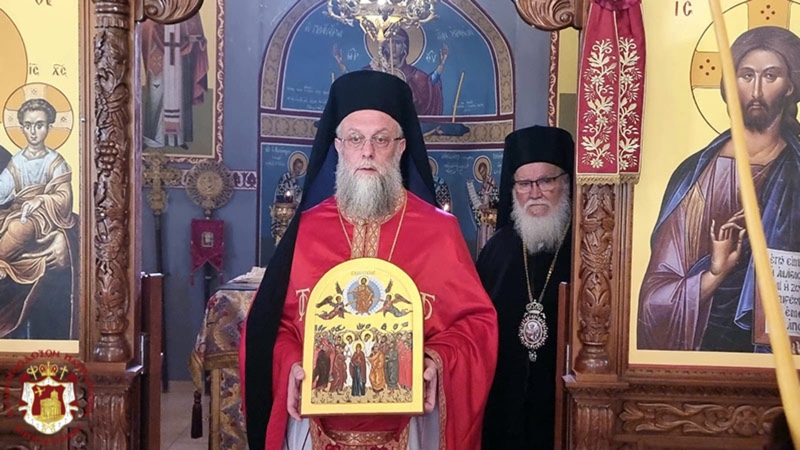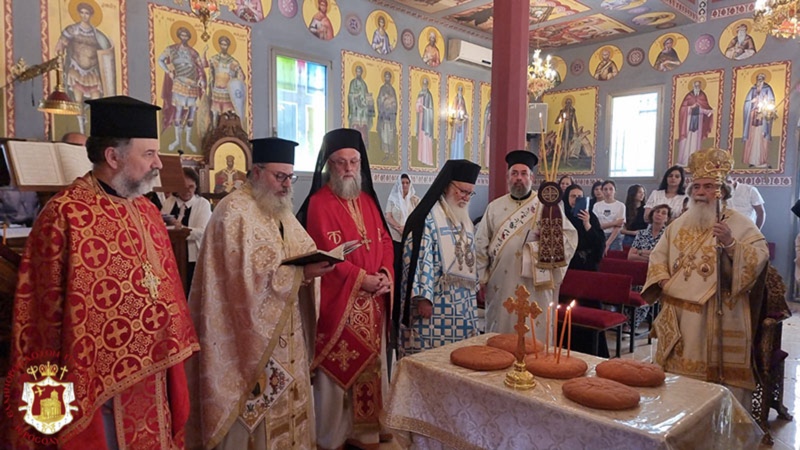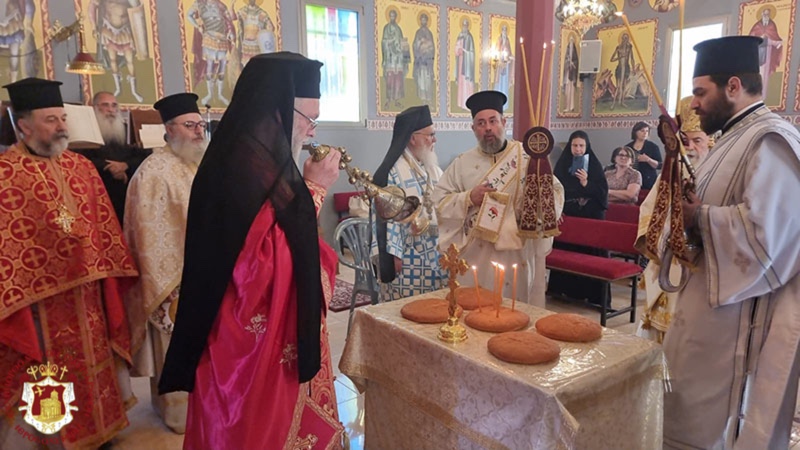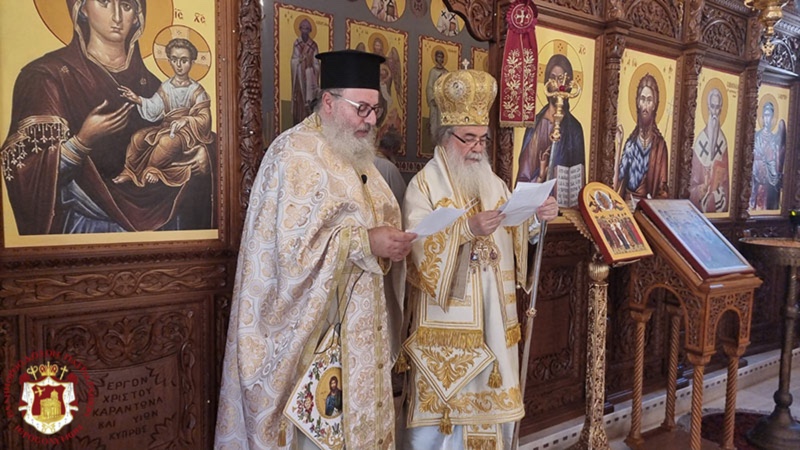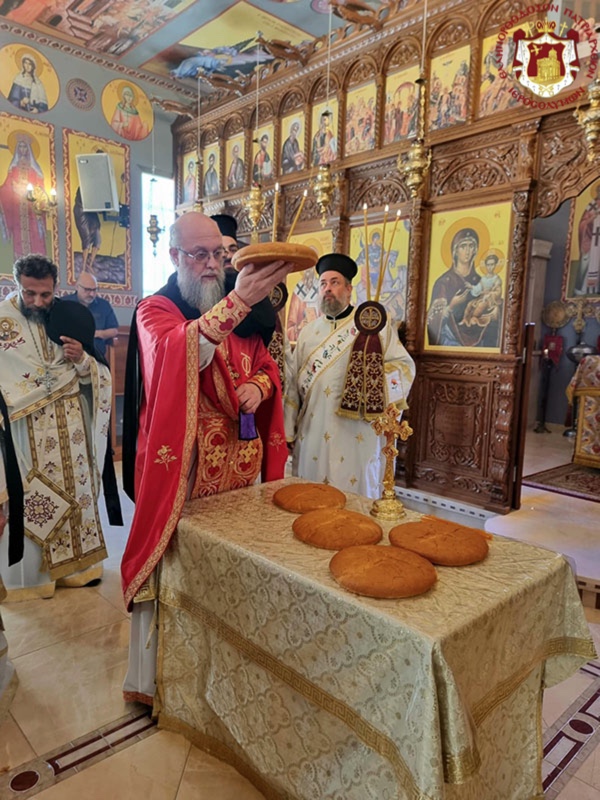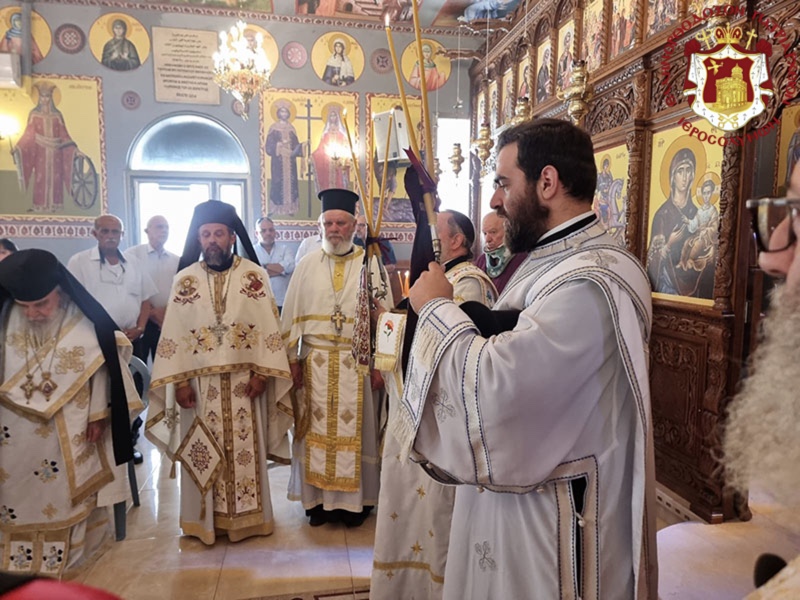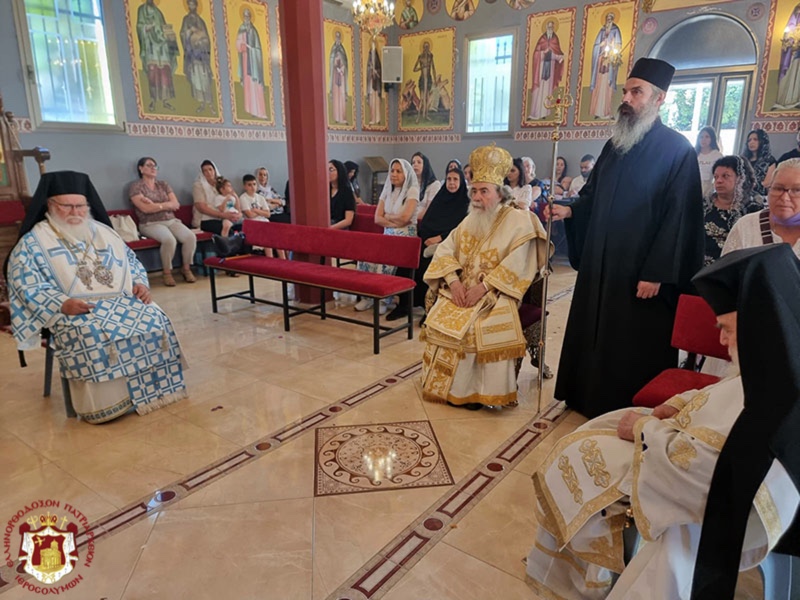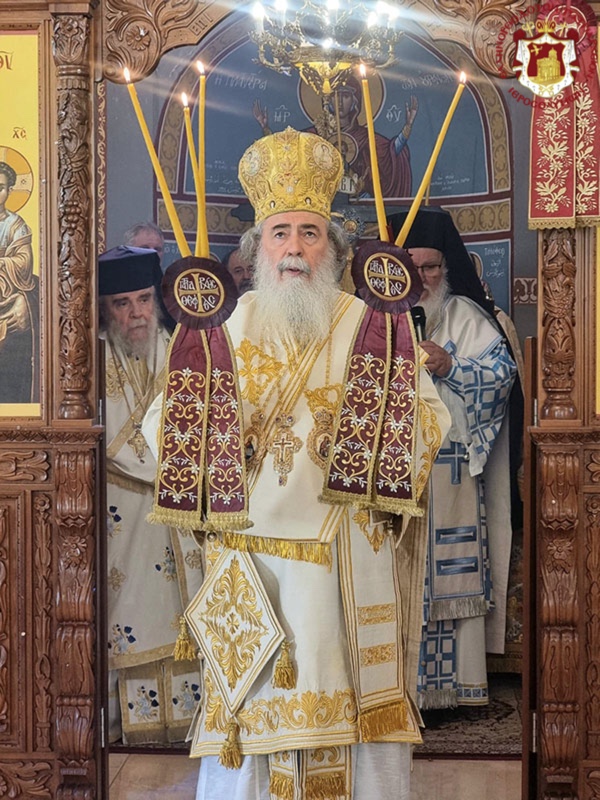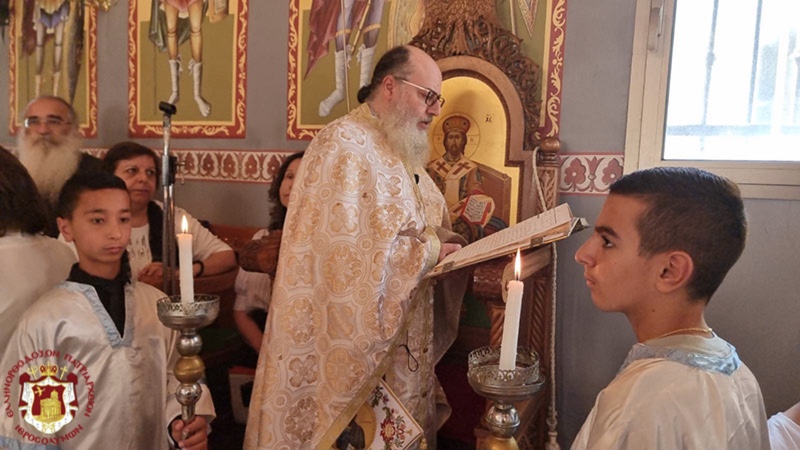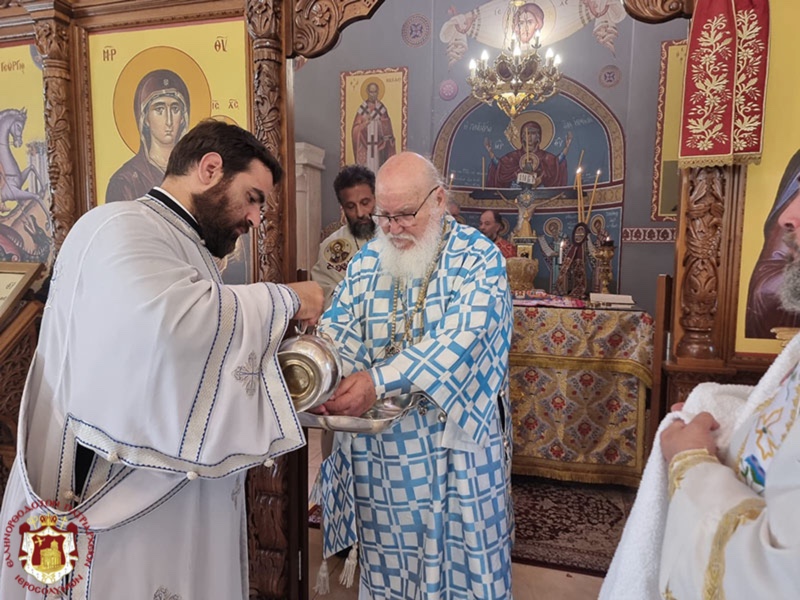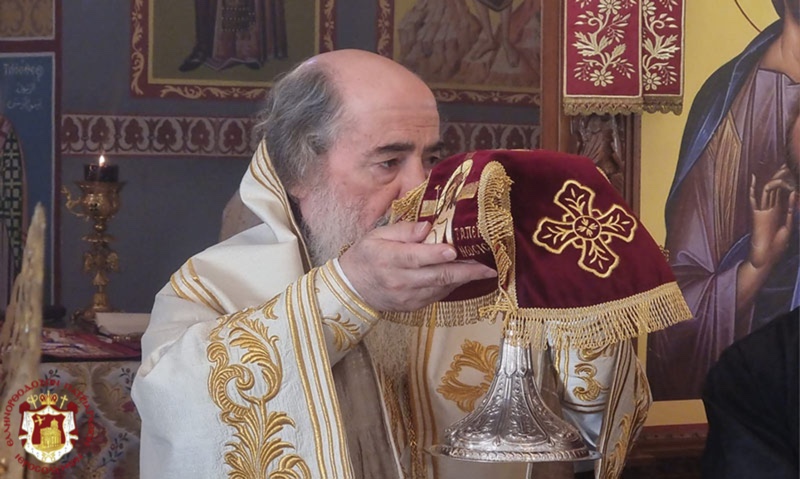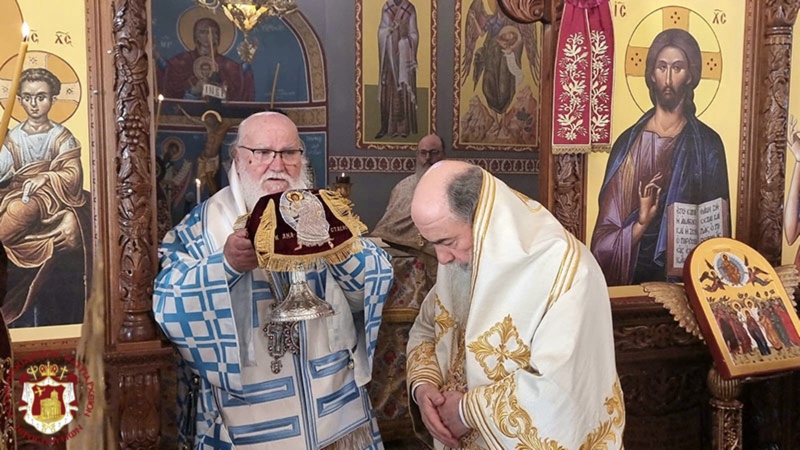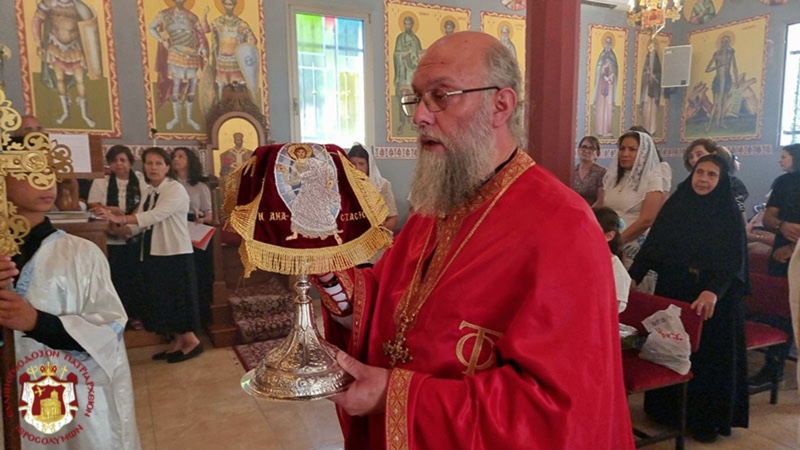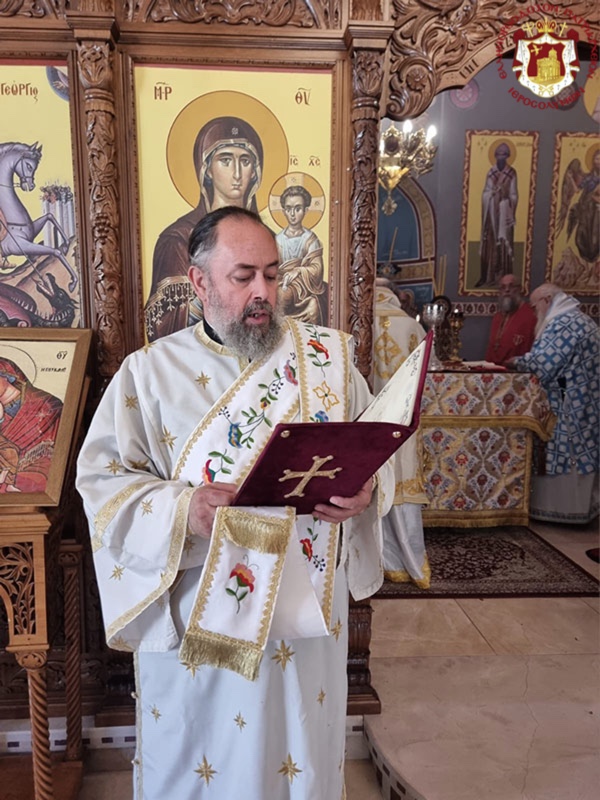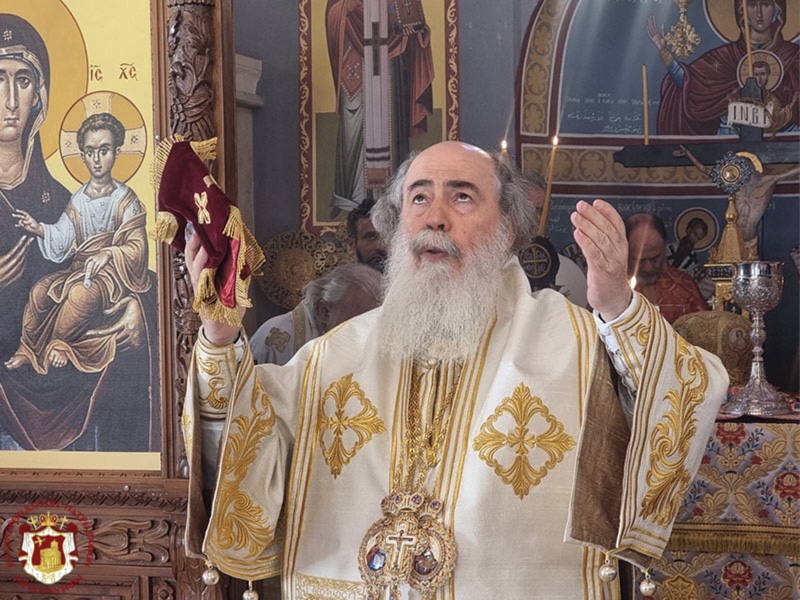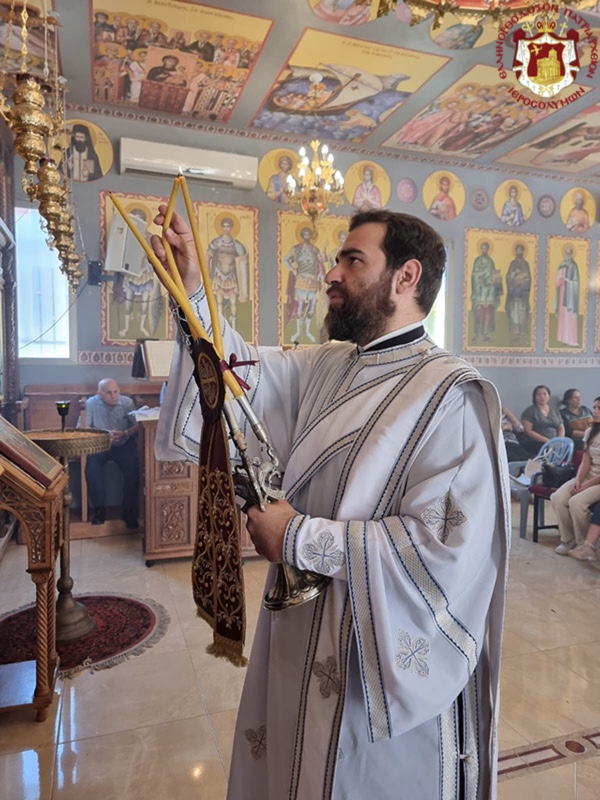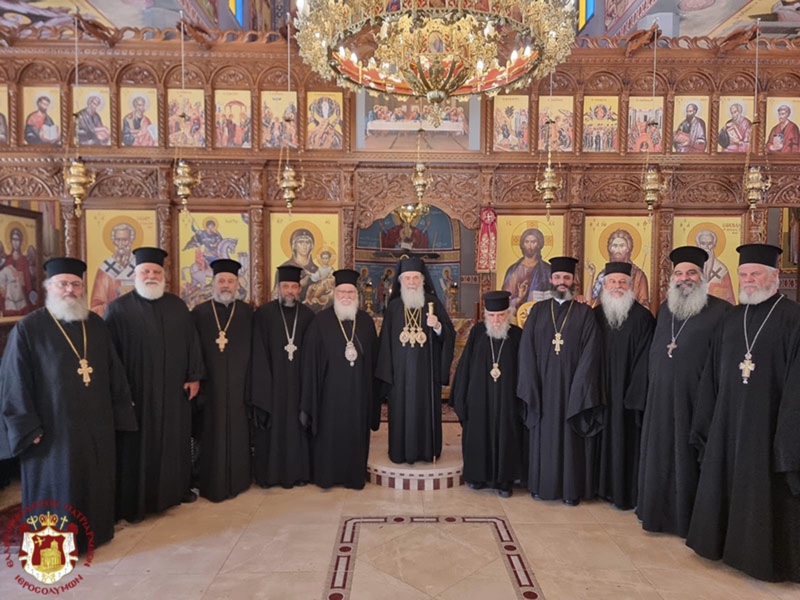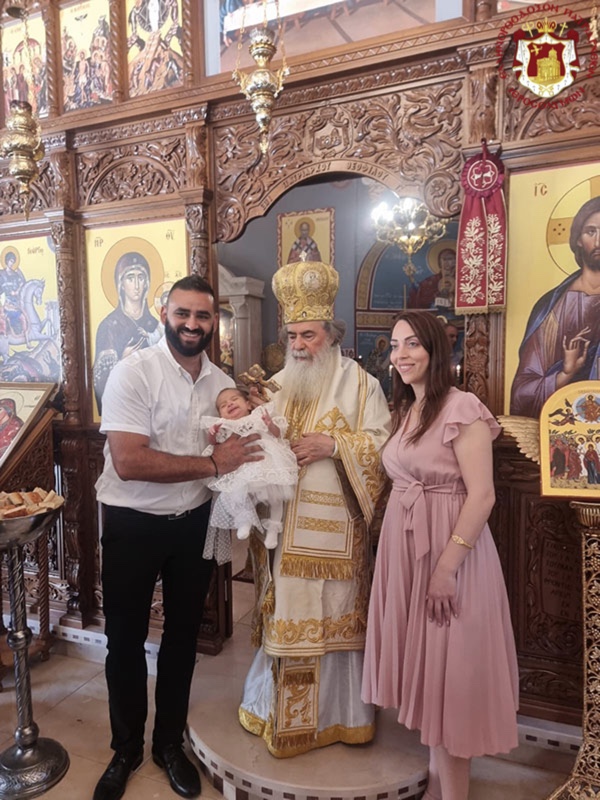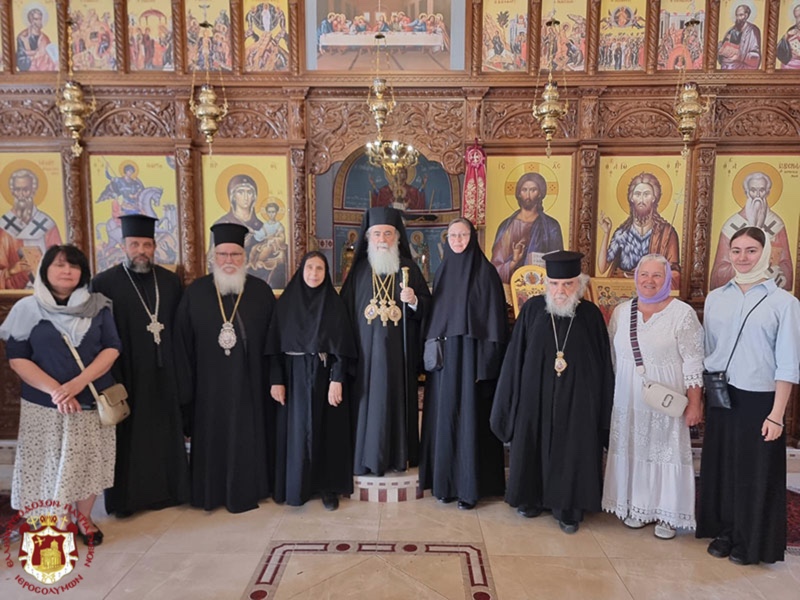Patriarch Theophilos of Jerusalem celebrates Divine Liturgy in Turan of Galilee
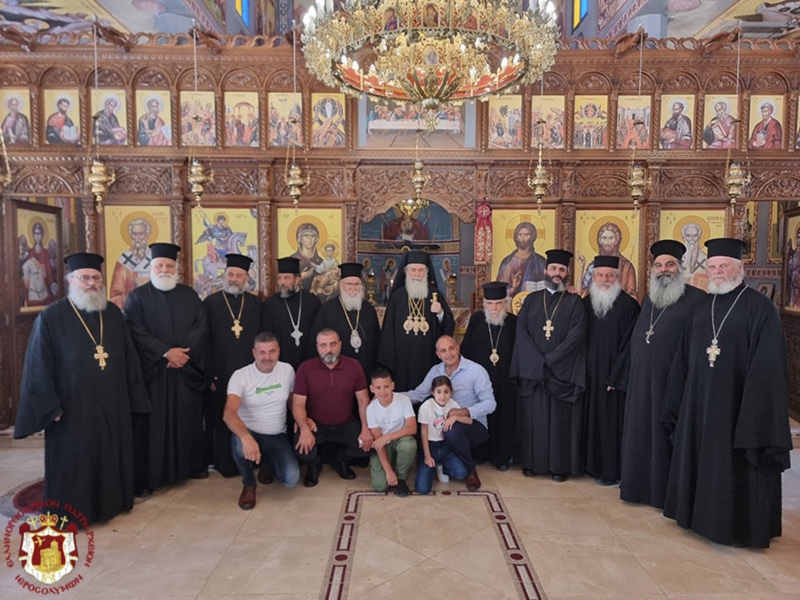
On Sunday, June 3rd/16th 2024, Sunday of the Holy Fathers of the First Ecumenical Council, His Beatitude Patriarch Theophilos of Jerusalem officiated at the Divine Liturgy in the Holy Church of Saint George of the Turan Community, a village located near Nazareth.
Co-celebrants to His Beatitude were Their Eminences, Metropolitan Kyriakos of Nazareth, and Archbishop Aristarchos of Constantina, and priests with first in rank the Elder Kamarasis Archimandrite Nektarios, the Priests of the Russian-speaking flock of the Patriarchate, Archdeacon Mark and Hierodeacon Eulogios. Many Orthodox believers of this parish participated in the Divine Liturgy, as the local Byzantine choir delivered the chanting under the guidance of His Eminence Archbishop Aristovoulos of Madaba in various languages.
Before Holy Communion, His Beatitude preached the Holy Sermon:
“Beloved Brethren in Christ,
Dear Christians,
“The choir of the Fathers which came together from the ends of the whole world, taught the one essence and nature of the Father the Son and the Holy Spirit, and clearly transmitted the mystery of theology to the Church. Praising them in faith let us bless them saying: O godly company, divinely eloquent warriors of the regiment of the Lord, greatly radiant stars of the noetic firmament, impregnable towers of the mystic Sion, flowers of paradise, wafting forth the scent of myrrh, golden mouths of the Word, boast of Nicaea, adornment of the whole world: pray ye earnestly in behalf of our souls!” (Matins, Praises, Glory) the hymnographer of the Church proclaims.
The grace of the Holy Spirit brought us all together today in the Holy Church of your city, Touran, to celebrate the First Ecumenical Council of the three hundred and eight God-bearing Fathers, who theologized and proved that the Son of God was truly perfect man and proclaimed and confessed this perfect man and perfect God as of one essence and nature with God the Father.
This Ecumenical Council was convened in Nicaea by the Roman Orthodox Emperor Constantine the Great in the year 325, who attended there and sat with them at the prompting of the Holy Fathers. In this Council, on the one hand, the blasphemies of the deacon Arius were condemned, who denied the divinity of the Son of God and proclaimed Him to be a “creature” and born “out of non-beings”; on the other hand, he was excommunicated and expelled from the God-human body of the Church and was deposed.
It should be noted that the heretical teaching and doctrine of Arius was the source of all the subsequent heresies created by “men who speak perversely” (Cf. Acts 20, 30) and “those who preached the faith were deceived” (Cf. 1 Tim. 6, 21). In other words, heretics are those who pervert the Holy Scriptures and the Holy Scriptures delivered to us by the holy disciples and apostles of our Saviour Jesus Christ, as Paul preaches: “The time has come for the sanctifying teaching to come.” For the time will come when they will not endure sound doctrine; but after their own lusts shall they heap to themselves teachers, having itching ears; And they shall turn away their ears from the truth, and shall be turned unto fables” (II Tim. 4, 3-4).
Those who possess the sanctified faith are the successors of the Apostles, that is, the Bishops ordained and established by their honourable hands, to whom the blessed Paul orders: “Take heed therefore unto yourselves, and to all the flock, over the which the Holy Ghost hath made you overseers, to feed the church of God, which he hath purchased with his own blood.” (Acts 20, 28).
These are the Holy Spirit-Bearing Fathers, who saved and entrenched our right and sanctified faith, theologizing in the Ecumenical and Local Holy Councils.
It is because of this that Paul calls himself Father, because he begat many children in the Holy Spirit, as he says addressing the Corinthians: “For though ye have ten thousand instructors in Christ, yet have ye not many fathers: for in Christ Jesus I have begotten you through the gospel”, (1 Cor. 4,15). Interpreting this word of Paul, the great Origen says: A father is the one who first spread and proclaimed the Christian faith, whereas a teacher is the one who takes charge of the child and takes care of his Christian education (education).
The communion in the Holy Spirit and succession between the Holy Apostles and Fathers of the Church is also expressed by the hymnographer of the Church: “The Church was strengthened unto one faith through the preaching of the Apostles and the doctrines of the Fathers. The Church is robed in truth woven of the word of God from above. It teaches truth, and glorifies the great mystery of faith” (Kontakion).
Indeed, the Church of Christ upholds and glorifies the great mystery of reverence, the mystery of the incarnation of the Son and Word of God, our Lord Jesus Christ from the pure blood of the Theotokos and Ever-Virgin Mary, through its bishops and our godly Fathers, who are clothed with power from on high, which was given to the Apostles after the Lord’s Ascension to heaven: “And, behold, I send the promise of my Father upon you: but tarry ye in the city of Jerusalem, until ye be endued with power from on high” (Luke 24, 49).
The Christ-bearing Fathers of the Church who assembled the First Ecumenical Council in Nicaea were clothed with this power from on high, the illumination of the Holy Spirit, who with one mouth and one voice proclaimed the Son and Word of God to be of one essence with the Father, being God of the true God, and also wrote the blessed Creed.
The Creed, which was fulfilled by the second Ecumenical Council in Constantinople in AD 381 is the “good legacy” (II Tim. 1:14), the good and precious treasure of the evangelical teaching, which Christ entrusted to the spirit-bearing Fathers of the Church. Let us also listen to the great Basil saying: Neither do we accept any newer confession of faith drawn up by others, nor do we ourselves dare to deliver products of our own intellect, in order to change the reasons of reverence into human words. But what we have been taught by the Holy Fathers, these we proclaim to the enquirers.
In the person of this Father of the Church, the Holy Martyr Polycarp, Bishop of Smyrna, the prophetic and apostolic character of the Holy Fathers of the Church is depicted in the redeeming work of the Church in the world. And this is because the Holy and God-bearing Fathers of the Church are the guarantee of the unadulterated and sanctifying faith, that is, of our Orthodox faith, which defines, or better said, supports the way of life of us Christians.
Therefore, the Church of Christ today also honours the preachers of the faith with the great Apostles for the glory and thanksgiving of God but also for the consolidation of our Orthodox faith through the intercessions of our most blessed Lady the Theotokos and Ever-Virgin Mary. After the hymnographer we say: “You are greatly glorified, O Christ our God, who established our Fathers as luminaries upon the earth, and through them led us all to the true Faith. O Most compassionate, glory to Thee” (Apolytikion of the Fathers). “Amen. Many and peaceful returns”.
A reception and a banquet followed, which the Community provided in honour of His Beatitude and His Entourage.
This was followed by a visit to the family of the Rum Orthodox Mr Rawan Saad, who is helping with the Patriarchate’s internet project.
From the General Secretariat
Source: Patriarchate of Jerusalem
